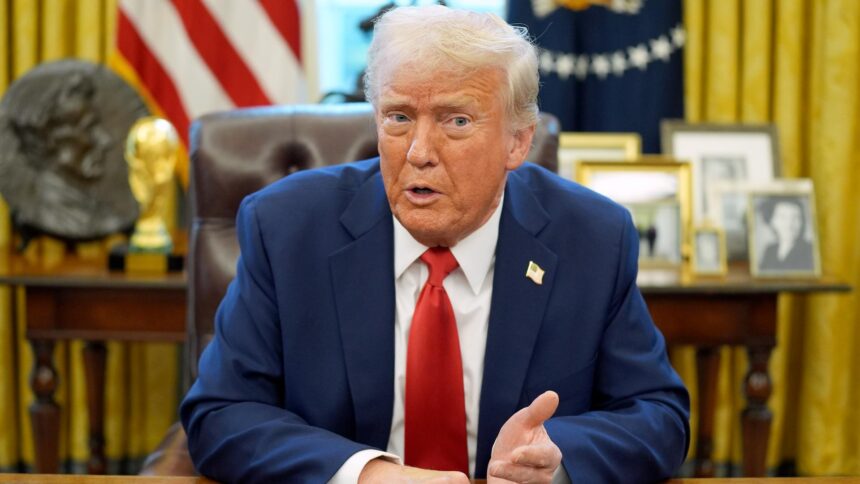The White House is making a bold move to dismantle the Department of Education, a decision that could reshape the future of American schooling.
President Donald Trump has long argued that education should be controlled by states, not Washington bureaucrats.
Now, with an executive order in motion, the administration is taking steps to reduce federal oversight of schools. But can a presidential order alone shut down an entire federal agency?
What’s in the Executive Order?
Trump’s executive order directs the Secretary of Education to draft a plan that shrinks the department’s influence.
This is more than just paperwork—it’s a signal that the administration is serious about decentralizing education.
The ultimate goal? Push Congress to pass legislation that would permanently close the department.
This push isn’t new. During his first term, Trump proposed merging the Education and Labor departments, but the idea never gained traction.
Previous Republican efforts to abolish the department have also failed.
However, this time, conservative groups like Project 2025 are throwing their weight behind the initiative, making it harder to ignore.
Shutting down the Education Department would force states to take full control over public schools.
In theory, this could lead to more localized decision-making and tailored educational policies.
But what happens to the billions of dollars in federal funding that currently support low-income students, special education programs, and college financial aid?
Advocates claim that eliminating federal oversight would empower states and improve outcomes.
Critics argue that it could create chaos—especially for marginalized communities that rely on federal programs for support.
Without national education standards, disparities between wealthy and underfunded school districts could widen, leaving millions of students at a disadvantage.
Final Thoughts
The executive order sets the stage, but the real fight lies in Congress.
History shows that even with Republican majorities, attempts to dissolve the Education Department have repeatedly failed.
Lawmakers understand the risks of dismantling a system that serves over 50 million public school students and provides financial aid to 12 million college students.
While Trump remains determined to push this agenda, opposition from both Democrats and moderate Republicans could stall or even derail the effort.
The fate of federal education policy now rests in the hands of Congress, and the outcome could redefine schooling in America for generations to come.







